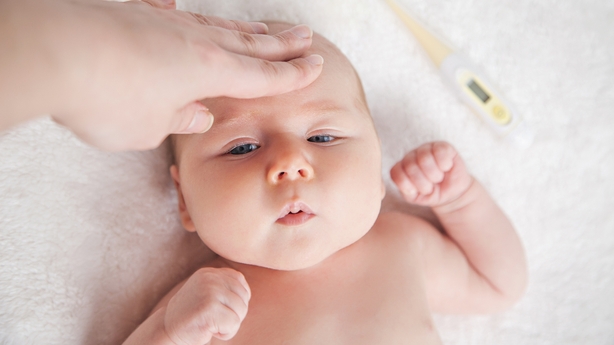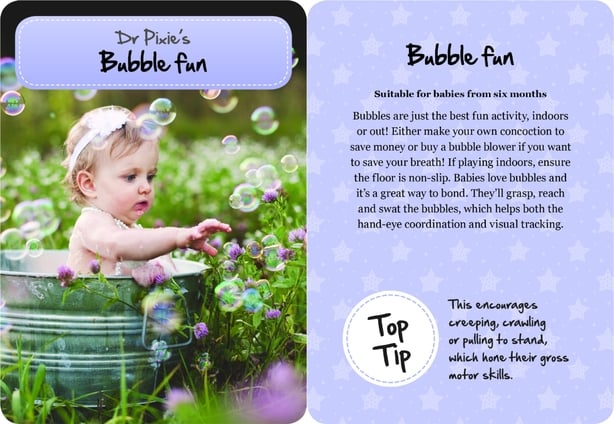A fever can be a very alarming thing for any parent. What's a normal temperature? How do I measure it? What can I do in an emergency? All these things can alarm the most experienced of parents, which is understandable.
We talk with one of Ireland's favourite doctors, Dr Pixie McKenna, on how best to deal with this situation.

Firstly: Measuring Temperature
"In children, a temperature of over 37.5 (99.5) is considered high," Pixie begins.
"For babies, we tend to use a digital thermometer under the arm - this is a must for babies under 4 weeks. It is generally kept there for 15 seconds."
"Ear thermometers are also used but tend to be more reliable in older children - you can use either an armpit thermometer or an ear thermometer for those aged between 4 weeks and 5 years."
"We don't advise using forehead thermometers or old fashioned Mercury ones," Pixie says.
"Try not to take the child's temperature after a bath, if they have been very active, are in a very hot room or are layered with clothes."
Why do children get high temperatures in the first place?
"Children tend to develop a lot of infections as their immune system evolves," Pixie explains.
"Most of these are simple viruses. Fever is the body's response to the infection. The majority of fevers in children can be managed by parents, without seeing a GP."
If your child is showing signs of a fever, how best can parents treat it?
"As a rule of thumb, you should treat the child, not the fever," Pixie recommends.
"If a child is well but has a temperature, there is no need to give them medicine to reduce the fever. If the child is unwell it is important to reduce the fever in a number of ways."
"Medicines can be given - paracetamol reduces fever for 4-6 hours. Ibuprofen reduces fever for up to 8 hours and also has an anti-inflammatory effect. Both can be used alternatively (not together)."
"Whilst neither of these medications require a prescription, you must follow the instructions carefully and make a note of when the medication was given and how much."
"Otherwise you run the risk of over dosage. If your child has other carers, it is important they do this also."
"Offer a feverish child regular fluids and ensure they are neither under nor overdressed. We no longer advise stripping the child, neither do we advise tepid sponging," Pixie says.
When should you really see a doctor?

"If your child is distressed and not responding to simple fever-reducing medicines," Pixie says.
"If their condition is deteriorating, they have a fit or you are concerned". If your child is dehydrated or has a rash - do the glass test"
"If in doubt with a rash always seek help. If you apply pressure to a rash with a clear glass the rash normally disappears, if it doesn't then your child needs urgent medical attention in A&E as this is a sign of meningitis."
"You should repeat the glass test periodically," Pixie advises. "If it is initially normal as the one thing about kids with fevers is that things can change quickly so you must always reassess."
"Evidence suggests parental concern about the wellbeing of a child is generally correct," Pixie adds.
"A fever lasting longer that 5 days should also be brought to the doctor's attention. Children under 3 months with a fever should have it brought to medical attention."
If in real doubt?
"Children aged 3-6 months with a temperature of 39 or higher are also more likely to have a more sinister underlying cause so I would also seek a doctor’s advice here. The bottom line is if in doubt get checked out and don't underestimate the pharmacist as an excellent source of advice."
"The bottom line is if in doubt get checked out and don't underestimate the pharmacist as an excellent source of advice."
Dr. Pixie's Baby & Toddler Activity Flashcards
Pixie has childcare at the heart of her work. Her latest project, a series of fun, inspiring, inexpensive and relaxed advice flashcards – coupled with expert guidance and support from Dr Pixie herself, make the perfect gift for parents, both new and experienced.

Each set of cards provides 40 accessible, fun activity ideas that you and your baby and toddler will love, in easy-to-carry packs.
To celebrate this, RTÉ LifeStyle have a number of packs up for grabs to our reader next week! Make sure to check back on how you can enter in!


